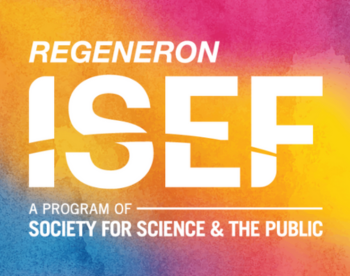30 Exciting Psychology Research Projects for High School Students
To achieve the most from a research project, starting with a unique and compelling research topic is crucial. With a relevant and engaging research topic, the time and effort you invest in your research project will yield more. By choosing a well-designed research project, you can gain interesting and relevant research outcomes:
- Learn new knowledge not covered in regular courses;
- Discover cutting-edge ideas, interests, and unanswered questions in your area of interest;
- Transition from passive learning to actively exploring hypotheses, contributing to scientific, public policy, or problem-solving academic dialogues;
- As a student, make significant progress by consolidating your learning and contributing new insights to your field of interest.
Research projects offer high school students so many benefits, and it is important to remember that all successful research begins with a successful research topic.
How to find research topics in psychology as high school students?
Researching something you are interested in, original, relevant, and engaging is key to turning your research outcomes into something that truly helps you grow and stand out academically. But if you don't want to settle for an overly cliché or general research topic, how do you find one that is truly engaging and fits your interests?
- Brainstorming: Good old-fashioned brainstorming can almost certainly help you tap into your passions and quickly start formulating a suitable topic. You might be surprised by your creativity. Be sure to write down your ideas and then complete this step by creating a "shortlist" of the high school research topics you find most promising.
- Exploratory Research: Sometimes you just need to learn more about a research field to find the best psychology research topic. Exploratory research is often easily done online and is a great way to delve deeper into the subject area you are considering:
- Find more topic ideas
- Deepen or narrow down topic ideas
- Decide if a topic is worth pursuing in-depth
- Define and Refine Your Research Topic or Question: A research paper or project usually involves more than just a short essay; you must formulate a driving question or hypothesis and synthesize information from various sources:
- Is your topic broad enough to provoke meaningful inquiry?
- Is it complex enough to integrate and evaluate competing viewpoints?
- Is there a way to use specific experiments, examples, or case study methods to keep the project focused?
- External Guidance and Advice: Obtaining guidance from teachers or professors, other mentors, or industry professionals is very valuable for discovering new topics or refining existing topic ideas.
Many professionals find it satisfying to discuss their work with interested young scholars, so don't be afraid to seek advice from people in the field—it's a great way to gain expert perspectives that can turn a good research topic into a great one.High school students who participate in the Embark Exploration Program can participate in the psychological research areas they are interested in and receive one-on-one guidance from top doctoral mentors. Below, we share some psychological research ideas proposed by Embark research mentors , hoping that they can inspire you!
1. Specific Impact of Social Media Use on Teen SelfEsteem
Study changes in selfesteem levels among teens after posting and browsing on Instagram, analyzing social comparison, likes, and comments, and how these factors affect selfimage and mental health.
2. Impact of Zoom Class Participation on High School Students' Anxiety
Explore the relationship between Zoom class participation and anxiety symptoms in high school students, analyzing the impact of interaction quality, technical issues, and screen fatigue on anxiety, and how teaching strategies can improve engagement.
3. Improvement of Depression Symptoms in Teens through 30 Minutes of Daily Running
Study the specific improvement effects of 30 minutes of daily running on teens with mild depression, analyzing the impact of running on brain chemicals like endorphins and how it enhances teens' emotional regulation.
4. Impact of Communication Quality during Family Dinners on Teen Resilience
Explore how communication quality during family dinners affects teen resilience, analyzing the specific roles of active listening, emotional support, and problemsolving in enhancing coping abilities.
5. Impact of Less Than 7 Hours of Sleep on Teen Mood Swings
Study the specific impact of less than 7 hours of sleep per night on teen mood swings, analyze sleep deprivation's effec on brain function, emotional regulation, and cognitive abilities, and provide suggestions for improving sleep hygiene.
6. Effectiveness of Classical Music in Alleviating Exam Anxiety in High School Students
Explore the specific effects and mechanisms of classical music in alleviating exam anxiety in high school students, studying the impact of different types of classical music and listening duration on anxiety levels and how music promotes relaxation and focus.
7. Improvement of Social Skills in Socially Anxious Teens through Dog Ownership
Study how dog ownership improves social skills in socially anxious teens, analyzing the emotional support from animal companionship, increased sense of responsibility, and enhanced social interaction opportunities.
8. Impact of Social Isolation during the Pandemic on High School Students' Loneliness
Explore the specific impact of social isolation during the pandemic on high school students' feelings of loneliness, analyzing the role of online social activities and family interaction frequency in alleviating loneliness and propose coping strategies.
9. Specific Impact of School Counseling Services on Student Exam Anxiety
Analyze the specific effects and methods of school counseling services in reducing student exam anxiety, evaluating the impact of counseling frequency, content, and psychological education on alleviating anxiety.
10. Improvement of Teen Mental Health through Weekly Nature Hikes
Study the specific improvement effects of weekly nature hikes on teen mental health, analyzing the role of natural environments in emotional regulation and stress relief, and the impact of hiking on social interaction and physical fitness.
11. Specific Help of Art Activities for Teens with Emotional Management Difficulties
Explore how art activities specifically help teens with emotional management difficulties, analyzing the emotional release and psychological relief brought by creative expression, and the role of artistic creation in promoting selfawareness.
12. Specific Relationship between Academic Pressure and Anxiety Symptoms in High School Students
Study how academic pressure specifically affects anxiety symptoms in high school students, analyzing the roles of time management, learning strategies, and school support in alleviating academic pressure.
13. Specific Impact of HighSugar Diets on Teen Mood Swings
Explore the specific impact of highsugar diets on teen mood swings, analyze the effect of blood sugar fluctuations on emotional stability and physiological responses, and provide healthy eating suggestions.
14. Specific Role of Peer Support in Alleviating Depression Symptoms in Teens
Analyze how peer support specifically alleviates depression symptoms in teens, studying the construction of support networks, the effectiveness of communication methods, and the positive impact of peer interaction on emotions.
15. Impact of Over 10 Hours of Weekly Gaming on Teen Mental Health
Explore the specific impact of over 10 hours of weekly gaming on teen mental health, analyzing the effects of game types, social interaction, and gaming addiction on mental health.
16. Specific Impact of CrossCultural Backgrounds on Teen Psychological Adaptation
Study how crosscultural backgrounds specifically affect teens' psychological adaptation abilities, analyze the impact of cultural conflicts, language barriers, and social support on the adaptation process, and propose support strategies.
17. Specific Impact of Perfectionism on Teen Exam Anxiety
Explore how perfectionism specifically affects teen exam anxiety, analyze the impact of selfexpectations and fear of failure on anxiety, and propose coping strategies.
18. Specific Improvement of Teen Stress Levels through Eight Weeks of Mindfulness Training
Study the specific improvement effects of eight weeks of mindfulness training on teen stress levels, analyzing the role of mindfulness practice frequency and content in stress relief and emotional regulation.
19. Specific Challenges to Teen Mental Health from LowIncome Family Backgrounds
Explore the specific challenges to teen mental health from lowincome family backgrounds, analyze the impact of economic pressure and resource scarcity on mental health, and propose support and counseling strategies.
20. Specific Help of Social Skills Training for Socially Anxious Teens
Study the specific effects of social skills training in improving socially anxious teens, analyzing the enhancement of social abilities through training content and practice opportunities.
21. Specific Impact of Gender Role Expectations on Teen Mental Health
Explore how gender role expectations specifically affect teen mental health, analyze the impact of social pressure and selfidentity on mental health, and propose support strategies.
22. Specific Impact of Cyberbullying on Teen Suicidal Tendencies
Study how cyberbullying specifically affects teen suicidal tendencies, analyze the impact of bullying types and support systems on mental health, and propose preventive measures.
23. Specific Impact of PTSD on Teen Academic Performance
Explore how PTSD specifically affects teen academic performance, analyzing the role of psychological support and academic counseling in academic recovery.
24. Specific Impact of Peer Pressure on Teen Drinking Behavior
Analyze how peer pressure specifically affects teen drinking behavior, study the impact of social dynamics and education plans on drinking behavior, and propose intervention strategies.
25. Different Impact of Social Media Use on Boys' and Girls' Mental Health
Explore the specific differences in the impact of social media use on boys' and girls' mental health, analyzing the impact of gender roles and social behavior on mental health.
26. Specific Impact of Authoritative Parenting on Teen Emotional Stability
Study how authoritative parenting specifically affects teen emotional stability, analyzing the role of communication methods and emotional support in emotional regulation.
27. Specific Impact of Future Uncertainty on Teen Anxiety Symptoms
Explore how future uncertainty specifically affects teen anxiety symptoms, analyze the impact of social changes and personal expectations on anxiety, and propose coping strategies.
28. Specific Impact of Identity Crisis on Teen Mental Health
Study how identity crisis specifically affects teen mental health, analyze the impact of identity recognition and social support on mental health, and propose support strategies.
29. Specific Impact of Social Media Use Habits on Teen Sleep Quality
Explore how social media use habits specifically affect teen sleep quality, analyze the impact of usage time and content on sleep patterns, and propose improvement suggestions.
30. Specific Relief of Academic Pressure through Enhanced SelfEfficacy in Teens
Study how enhancing selfefficacy specifically relieves academic pressure in teens, analyze the impact of increased confidence and goal setting on academic performance, and propose specific methods.
Pursue independent research with Embark Exploration Program
Are you passionate about scientific research but unsure where to begin? The Embark Exploration Program is here to guide you. This program offers personalized research training for young individuals, led by a team of master's and doctoral graduates from top American universities.
Through our online courses, you'll receive mentorship from experienced professionals and have the chance to collaborate with peers who share your interests. The Embark Exploration Program is designed to help you develop your research skills and achieve your academic aspirations.
If you have any questions or would like to learn more, please don't hesitate to contact us. We're excited to support you and explore potential collaboration opportunities.



